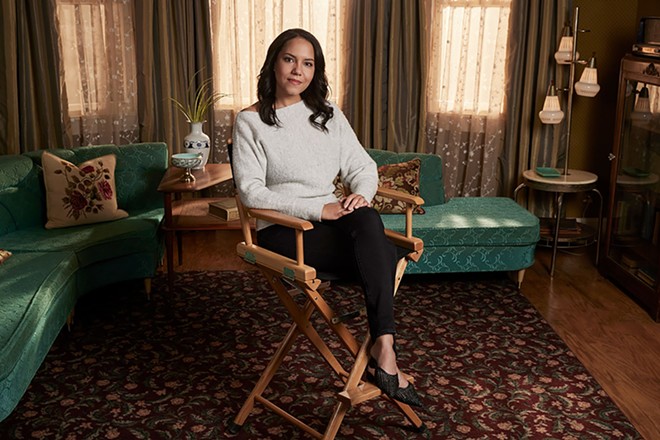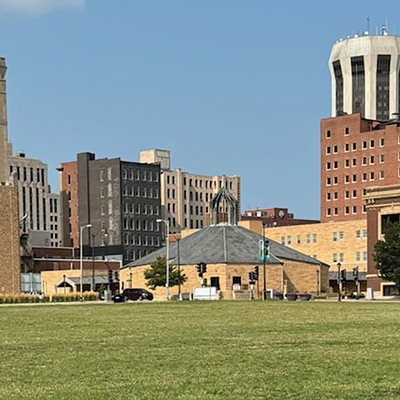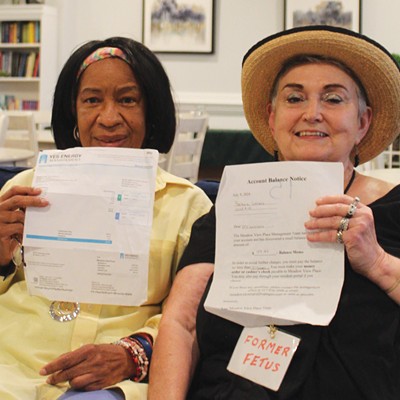She was once the only Black person living in Athens, Illinois, a village of 2,000; today she is a respected screenwriter in Hollywood with millions of people watching her work.
Marissa Jo Cerar's mini-series "Women of the Movement" focuses on Mamie Till, whose 14-year-old son, Emmett, was killed in Money, Mississippi, in August 1955.
Chicago native Emmett Till was visiting relatives in Mississippi when he spoke with Carolyn Bryant, the 21-year-old white co-owner of a local grocery store. Several nights later, Bryant's husband, Roy, and his half-brother, J. W. Milam, went to Till's great-uncle's house, forcefully took him and tortured him before shooting him in the head and throwing his body in the Tallahatchie River.
Till's mother, Mamie, insisted on an open-casket public funeral, with the image of the boy's mutilated body shocking the country. In September 1955, Bryant and Milam were acquitted of Till's kidnapping and murder, though they later admitted to killing him.
Following the funeral, Mamie toured the nation telling the story of her son. Many historians mark his death as the beginning of the modern civil rights movement.
Entertainment executives pitched Cerar on the idea of turning a book on Emmett Till into a mini-series.
"I was a writer-producer on season three of "The Handmaid's Tale." And I just wanted a break. It was going to be for a few months, and I just wanted to really spend the summer with my family," Cerar told Illinois Times. "But I went to a general meeting at Capitol Entertainment, the studio behind "Women of the Movement." ... I believed that I was the person who should write it because I really wanted to tell the story from the perspective of a mother who let her child go on vacation without her, right after he turned 14. There was that coming-of-age and that fear. And then the worst nightmare comes true."
Cerar kept a picture of Mamie and Emmett above her computer while she wrote, so she never forgot why she was doing what she was doing.
"Women of the Movement" is available on Hulu. When it first aired on ABC in January, about three million people watched each episode of the six-part series.
Marissa's parents, George and Rita Cerar, told Illinois Times their daughter always aspired to have a career in show business.
But she began life known only as Baby No. 3, her mother, Rita, recalled of her adoption.
"It was a Catholic children's home," she said. "And her parents were just young and the girl got pregnant. The girl and boy thought they wanted to try to keep their baby, and his minister and her priest and their families talked them into putting the baby up for adoption."
The birth mother was a white cheerleader from a Catholic high school, and the father was a Black quarterback from a rival school.
Marissa Jo is one of eight adopted children and the lone Black member of her family. Her mother said she has never met her birth parents or expressed a desire to do so.
"I'm content," Marissa Jo said. "You never know who they are. And I have to protect my current family, and you know, that could change one day when we're all older. I feel like I am where I'm supposed to be and I have the right people surrounding me in my family now."
It was not always easy to be the only Black person in a small town, her father, George, the former mayor of Athens, said.
"Her older brother got suspended for five days. One of the boys on the bus called her a 'nigger' and he beat him up. They didn't do nothing to that boy, but my son got suspended for five days," George recalled.
But Rita said her daughter also had good times, noting she swam competitively, played softball and was an excellent student.
Marissa Jo said she has no recollection of the incident on the bus but acknowledges sometimes feeling like an outsider.
"I can empathize with so many different types of people who may not have my same skin color or background or religion or gender identity. Because I was different, I think that's one of the reasons why I tell these kinds of stories of outsiders or people who were underestimated. I don't think it's a conscious thing. But it probably goes back to me being different."
Marissa Jo also wrote several episodes of "The Handmaids Tale," a dystopian television series based on the 1985 novel of the same name by Canadian author Margaret Atwood.
George and Rita now live in Carlinville in a home their daughter purchased for their retirement. Ironically, it's bigger than their Athens home where they raised eight kids.
What motivated the Cerars to make a home for Marissa Jo and her seven siblings?
"We both are from big families," George said. "We wanted children. (Rita) had 14 miscarriages. Two of them were far enough along that they had to be buried. We were bound and determined that we were going to have some kids. So, we started adopting."
At age 11, Marissa Jo's parents bought her an electric typewriter that she could use to write. While enrolled in Athens High School, she took acting and modeling classes in Chicago and later earned a film degree from Columbia College in Chicago.
Growing up, Marissa Jo liked watching TV with her mother.
"I just loved TV," Rita said. "And I only really got to watch it in the evenings because I was so busy. But I remember we watched an award show and she was sitting on the floor. She was about 13. And she got up off the floor and she said, 'That's what I want to do. I want to get up there and say, "And I thank my mentor and I thank my parents. I just want to say that I thank you so much for helping me in my career."'
Rita noted that a couple of years ago, Marissa Jo's childhood dream came true. "She and other people she worked with won an Emmy for "The Handmaid's Tale.""
Scott Reeder, a staff writer for Illinois Times, can be reached at [email protected].





















